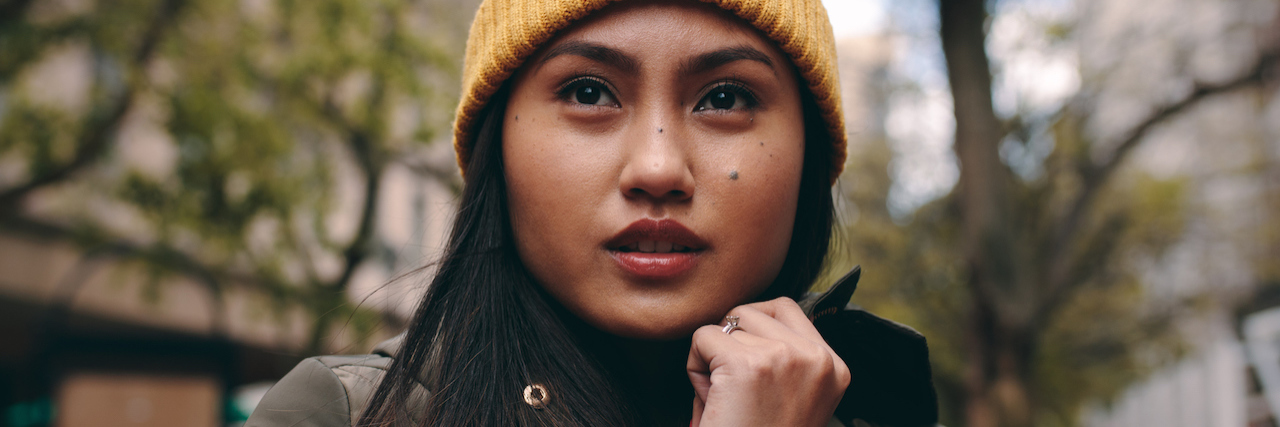I’ve been in therapy on and off for the last 13 years for anxiety and depression (currently off).
I’ve been on antidepressants and anti-anxiety meds on and off for the last seven years (currently on).
My parents only found out about it two months ago — through a Facebook post I wrote for Mental Health Awareness Month.
Don’t get me wrong. I consider myself to be close to my parents, as close as you can be living 2,500 miles apart for the last 20 years (them in Hawaii, me in California). But mental health just isn’t something we talk about.
Growing up, my parents were never “tiger” parents. When it came to school, they always encouraged me to do my best. But they also never made my older sister and I play any sports or learn any musical instruments. I joke around now that I’m the least well-rounded person I know.
They showered praise for doing well in school and talked about other people’s kids and what colleges they were going to. Between me and my sister, she was the “fun, pretty one” and I was the “smart” one. I felt like being smart was who I was and all I was. I became a super overachiever. I went to a great university, and then got a master’s degree at age 22 and my doctorate by 27.
When I started to struggle, I didn’t want to tell anyone… I definitely didn’t want my parents to worry. I had it in my head that, as immigrants, they had sacrificed so much for me and I needed to excel professionally to make them proud and prove it was worth it.
All of the pressure almost broke me. Whenever work got tough, I looked for a new job. Whenever I started a new job, my anxiety, perfectionism and imposter syndrome all kicked in. I’ve had 10 jobs in the last 14 years, and even with a doctorate, I’ve gone through long stretches of unemployment.
All the while, I never told my family. When I wasn’t working, I would pretend that I was. When I had to go on medical leave for two months to start an intensive outpatient therapy program, I pretended I was just going to work every day. And I always told myself it was because I didn’t want them to worry. I’m pretty sure my mom has her own undiagnosed anxiety disorder that’s been unchecked her whole life. She’s a worrier. My sister is a worrier. I’m a worrier.
After all of my therapy, and self-help books, and journaling, and reading inspirational articles online, I started thinking about sharing my story. Of course, my mom decided to be hip a few years ago and join Facebook, so anytime I thought about posting, I always stopped myself. Until two months ago. It was Mental Health Awareness month and Asian Pacific American Heritage month, and I poured my heart out online. My post got amazing responses from friends, thanking me for sharing while telling their own stories.
Almost immediately after posting I got a text message from my dad (who isn’t on Facebook). “How are you? Not so OK I guess since your mom just showed me what you posted on Facebook…” A few days later, I got a card in the mail from my mom, that even now is hard for me to re-read. “I bet you’re surprised to get this note from me. We don’t get to talk often and when I read your post, it broke my heart.”
I can’t say it was worth all of the lying. I spared her the worrying, but instead made her feel like an awful mother because I didn’t want to communicate with her. So let’s change the cultural stigma, folks. Minority Mental Health month is a great time for it. The conversations are tough and awkward. Your parents might tell you to get over your high school heartbreak because you should be focusing on school anyway. They might tell you to just keep praying during your long stints of unemployment. But trust me, we’re all going through something. You’re not alone. And your family can be there for you more than you might think.
Getty image via jacoblund

